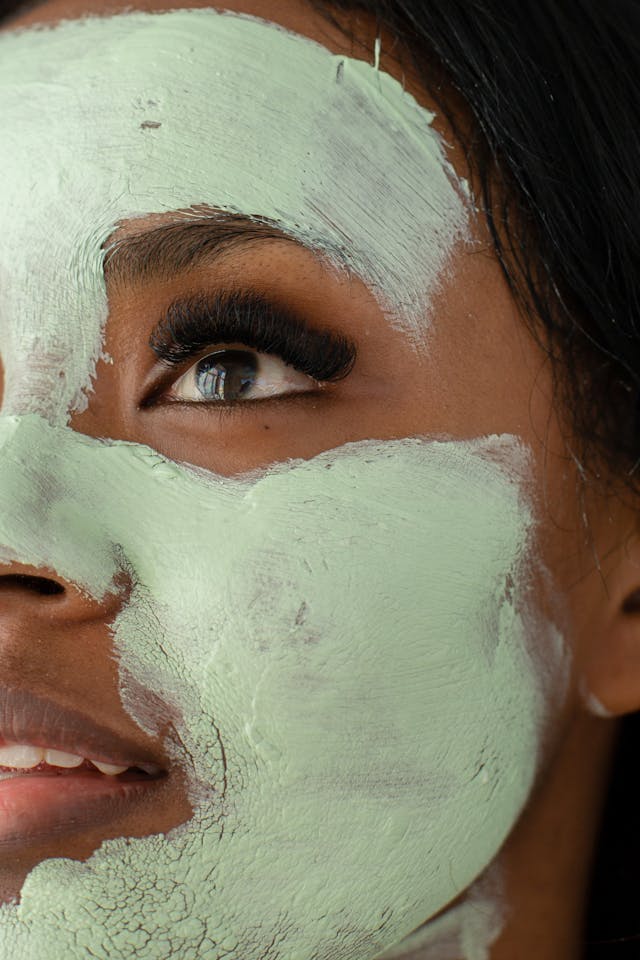FERUARY 22, 2024
The Rise Of A-Beauty: The Brands Harnessing The Power Of African Ingredients

K-Beauty and J-Beauty have had their time under the spotlight. Yet presently, attention shifts to A-Beauty: a terminology denoting skincare, hair care, and makeup items originating from the African continent. The essence of African Beauty is deeply rooted in ancient sagacity and time-honored traditions of employing natural constituents for nourishment and remedial purposes. Moroccan oil, karite shea butter, copra oil, baobab oil, and marula oil (among others) have been venerated within Black communities globally for centuries, serving varied purposes from hair treatment to skin hydration.
A fresh wave of African brands is harnessing the potency of these natural marvels to cater to our beauty requisites sans the dependence on harmful substances - a phenomenon gradually capturing the attention of the global beauty realm.
The African beauty sector currently undergoes a flourishing phase - prognosticated to yield nearly $66 billion domestically by 2024. This surge is propelled by a plethora of factors, spanning from social media inclinations (evident in the surge of #ABeauty on Instagram and the ascendancy of renowned African beauty influencers such as Dimma Umeh, Enioluwa Adeoluwa, Cynthia Gwebu, and Nyma Tang) to evolving beauty benchmarks, steering discerning consumers towards the natural, heritage-laden products emblematic of A-beauty.
Pioneering this new wave of beauty enterprises are African entrepreneurs. Epara, founded by Ozohu Adoh, stands as a luxury skincare entity renowned for its integration of African botanical constituents like buchu plants, neroli, and marula oil. Arami Essentials, a Nigerian skincare venture by Ore Lawani, showcases cleansers featuring clarifying African black soap. Salwa Petersen established her eponymous hair care brand, inspired by a familial tradition rooted in the usage of antioxidant-rich, vitamin-infused seeds sourced from the highlands of Chad for the care of tightly textured hair.
During my upbringing in Nigeria during the early 2000s, my proclivity towards beauty experimentation was palpable. However, my perception of domestically crafted beauty commodities was shrouded in negativity. In fact, the tag 'made in Africa' often connoted a sense of inferiority. During that period, foreign brands enjoyed a higher degree of desirability and trustworthiness.
As I matured, I discerned that the foreign beauty products I encountered failed to cater adequately to women of color. There was a dearth of adequate protection against harsh solar radiation and UV exposure, alongside a deficiency in suitable remedies for skin maladies such as hyperpigmentation, dryness, and acne. Consequently, in recent years, I've embarked on a quest for reliable and efficacious African products from the burgeoning array of A-Beauty brands, aimed at addressing this void.
My narrative is not anomalous. Over the past decade, beauty paradigms in Africa have undergone a metamorphosis, piquing the interest of many consumers, including myself, in reverting to a naturalistic approach. A burgeoning awareness - coupled with a steadfast rejection - of harsh concoctions such as skin-lightening creams (which not only harbor deleterious chemicals like hydroquinone but also elevated levels of mercury) is discernible. These products, once readily available in pharmacies and beauty emporiums across Africa, are now subject to regulatory measures. Several nations, including Ghana, Kenya, and Rwanda, have enforced bans on the sale of skin-bleaching products in recent years.
This contemporary crop of A-Beauty products leverages natural panaceas to assuage persistent skin afflictions. Sneha Mehta, co-founder of Kenya-based skincare and wellness label Uncover, extols the escalating demand for products rooted in natural ingredients that draw from Africa's rich beauty heritage. "Our beauty market mirrors the continent's diversity, with each locale boasting unique preferences and traditions," she asserts. "What sets our products apart is the perpetuation of the African identity through the ingredients, each infused with a plant indigenous to the continent. Our sunscreen incorporates soothing aloe vera, while our vitamin C serum harnesses baobab extracts to alleviate redness."
Valerie Obaze, the brain behind R&R Luxury, a sustainable beauty brand established in Nigeria in 2010, exalts the opulence of natural African resources while acknowledging impediments to fully realizing A-Beauty's global potential.
"Africa abounds in natural resources, yet the available technology for product development remains circumscribed," she laments. "Even after 14 years since inception, this remains an ongoing endeavor. Most of my products are enriched with shea butter and crafted by native Ghanaian artisans with extensive experience in the field." She elaborates, "Every R&R product serves as a portal to unveiling the most resplendent versions of ourselves through ingredients bestowed upon the world by Africa."
Notwithstanding the challenges encountered, the African beauty sector epitomizes immense promise. Raeesa Bray, a beauty pundit at consumer trend forecaster WGSN, identifies scalp care as the forthcoming frontier for industry focus. "A burgeoning populace donning wigs and undergoing frequent braiding without affording their hair or scalp adequate respite has sparked a movement towards prioritizing scalp care and hair wellness," she observes. "We anticipate a continued surge in this domain, with brands such as Amila in Nigeria, Suki Suki Naturals in South Africa, and Nokware in Ghana spearheading the charge."
The odyssey has been arduous, yet the African beauty sector's capacity to adapt and thrive in the face of constraints spanning limited financing, technology, and resources speaks volumes about the indomitable spirit of African entrepreneurs, portending a luminous trajectory for A-Beauty.
This sentiment finds resonance among all three women. "In the years ahead, I envisage and aspire to witness a beauty realm that not only mirrors the vivacity of the African continent but also emerges as a global standard-bearer of inclusivity, innovation, and empowerment," asserts Bray.
Source: Service95